Magento 2 B2B extension for Commerce and Cloud

The appearance of the official B2B tool by Magento was inevitable, since the company always tried to embrace as wide range of products and services as possible. And now, we can see a new solution in the company’s portfolio – Magento Commerce Cloud. It is an ultimate B2B tool that essentially improves the default experience of corporate buyers and merchants. Magento Commerce Cloud includes lots of new features and dramatically enhances the existing B2B opportunities of the platform. At least, this was mentioned at Imagine 2017 – the company’s user conference in Las Vegas. If you want to interact with quotes in a more efficient way, provide customers with quick ordering, fully customize and personalize your catalog, and fully leverage new integration options, you’ve come to the right place, because below we describe all these and other aspects of the Magento B2B Commerce Cloud trying to find out whether it worth the trouble or not.

First of all, we’d like to start our journey to the world of B2B Commerce Cloud from several drawbacks. Please note that we have to deal with the first major B2B-focused platform improvement and as we all know the first fry is bound to be a flop. Is Magento Commerce Cloud an exception? We still have to answer this question, but let’s find out what else is wrong with the new product.
Here, we should name just two things: Magento Enterprise Edition and Magento Enterprise Cloud Edition. No Community Edition-based B2B solutions are available. Thus, there are two forms of Magento Commerce Cloud: on-premises and cloud-based. Both are enterprise-based tools, so don’t even think about free and opened community-based website: you have to spend a lot of money on Enterprise Edition and Enterprise Cloud Edition while the B2B improvement is completely free. Good news is that you still have an opportunity to create a reliable B2B website on the basis of Magento 2 CE with the help of third party extensions and external platforms. Check this post to find out how to save money and get a full-featured B2B store: Magento 2 Business-to-Business (B2B) extensions and solutions.
But let’s return to our muttons. Magento Digital Commerce Cloud is provided for free, so why are we dissatisfied? Because it is not available for Magento Community Edition. As mentioned above, you still have to pay for Magento Enterprise Edition and Magento Enterprise Cloud Edition to get the new product. But why is Magento Commerce Cloud still a great idea?
Here at Firebear, we think that the new offer is a whiff of fresh air, because it starts equalizing the difference between B2B and B2C Magento merchants. B2B clients (or at least their EE part) just got their own toolkit that provides “high-touch experience to business customers”. It lacks a Community Edition-based version, but we hope this is only a matter of time. However, it won’t be the same tool that lacks some features.

While talking about a completely free B2B solution, we realize that it will have lots of limitations in comparison with the existing version of Magento Commerce Cloud. But the example of CE and EE illustrates that Magento is a customer-oriented company that provides the ability to get a fully-featured store which requires some huge money expenditures as well as offers an alternative path when you use the Community platform and enhance it with the help of third-party extensions (dramatically decreasing costs, but spending more time on store launch).
The same principle should be used for the new B2B product. Thus, the gap between B2B and B2C products offered by the Magento company will be closed. But these are only our desires. Now, let’s find out what are core features of Magento Commerce Cloud and what Magento 2 modules can be used to get them on the Community Edition platform.
Table of contents
Quick Ordering
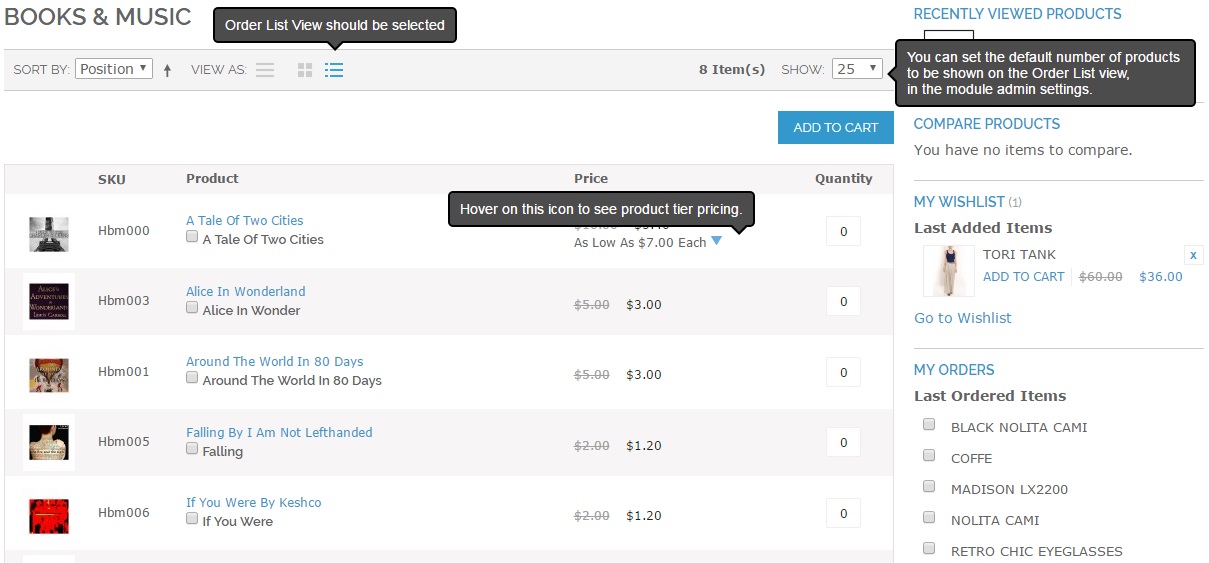
One of the most notable improvements introduced with Magento Commerce Cloud is related to various quick ordering features. The new toolkit allows you to upload lists with SKUs, use requisitions, copy previous orders, as well as fully leverage re-orders. We know for sure that all these features are possible with third-party Magento 2 extension, so check the following list:
- Mass Order Actions and Extended Order Grid – these two Amasty modules improve your daily order management routine;
- Subscription & Recurring Payments – this Magento 2 extension by aheadWorks enables customers to buy goods on the basis of subscriptions automatically;
- Orders Export Tool by Wyomind will seamlessly export your order data to third-party platforms;
- B2B Orderlist – Ecomwise knows how to let customers purchase right from the catalog in bulk without going to product pages;
- Import Export Bulk Orders Invoices Shipments – Commerce Extensions has more than a dozen import/export modules, and this one is responsible for all orders and related data;
- Improved Import – and you can fully leverage import with our own solution.
Quotes
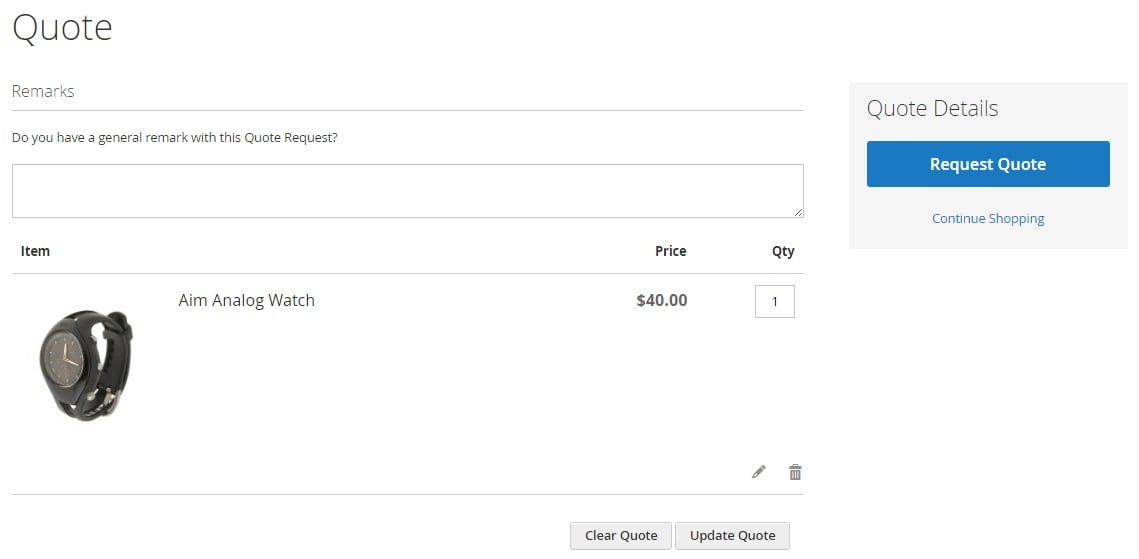
This is a very important B2B feature that lets customers ask for quotes. It is available with installation of the B2B Magetno 2 free extension developed and supported by Magento team. You review requests and accept or deny them. It’s not something unique and we know several reliable tools that already implement the feature in Magento:
- Cart2Quote – this Magento 2 extension provides customers with the ability to request quotes; use it with the following Magento 2 module: Not2Order – a tool designed to hide prices and the Add to Cart button;
- Cart Quote and Hide Price – also check these alternative solutions by Ecomwise.
Moreover, there are two types of quotes – quote and negotiable quote. The sample above refers to the negotiable quotes, which some customers can request. General quotes can also refer to the abandoned carts, or just products in the cart. Both entities can be exported and imported to Magento 2 using Improved Import and Export extension with B2B Add-On.
Fully-featured guide on how to import and export both quotes and negotiable quotes to Magento 2 can be found in this blog post.
For the full list of features introduced in the Magento 2 B2B extension please read Magento 2 Commerce and Cloud (Enterprise Edition) Specific Features article.
Multi-Channel Capabilities
Besides, Magento Commerce Cloud provides the ability to manage multiple ecommerce brands in multiple geographies. It can be B2B and B2C portals or both including custom branding – nothing out of the common.
Third-party extension providers know how to achieve this goal without headaches. Currently, we know two reliable Magento 2 modules: uMarketplace Suite Multi-Vendor Marketplace by Unirgy and Marketplace Multi Vendor Module by Webkul. Both are described here: Magento 2 Multi Vendor Marketplace. Of course, these are not the only tools designed to build a multi vendor marketplace, so you can share your favorite ones in comments.
Corporate Account Management
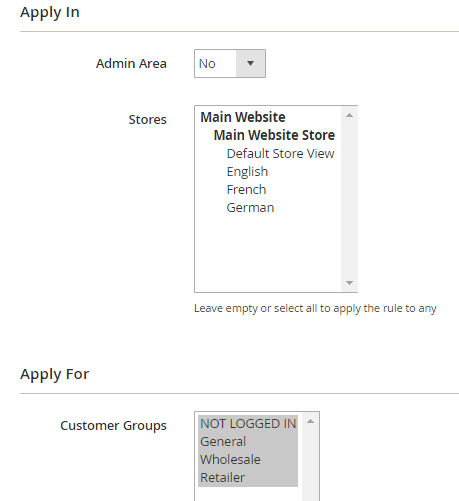
With this feature, Magento Commerce Cloud provides the ability to implement individual approach to customer groups and customers while creating a customizable corporate structure.
Just look at the following Magento 2 extensions – they fully cover this need:
- Shipping Restrictions & Payment Restrictions – Amasty offers two modules that allow to provide different payment and shipping policy to different customers and customer groups;
- Customer Group Restrictions – easily implement payment restrictions on a customer group basis with aheadWorks;
- Category Permissions – you can even restrict access to categories for certain customer groups with this extension by Ecomwise;
- Advanced Permissions – this one is a backend tool that allows to restrict admin access to certain areas of your store; although this is not a B2B tool, it can be fully leveraged for your B2B needs.
Backend Integrations
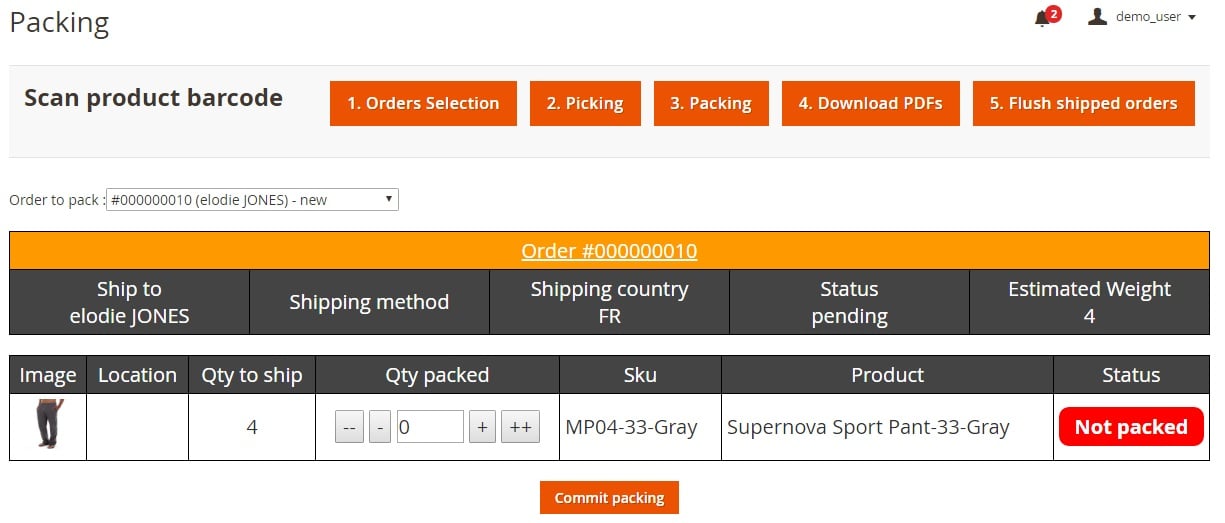
There are tons of third-party platforms that can be integrated into the Magento 2 backend in order to increase productivity and and reach better business results. And we are sure that Magento Commerce Cloud will never provide such robust features as some market giants offer:
- Embedded ERP – this is an enterprise resource planning system by Boost my Shop that covers all aspects of supplier, stock, and order management – check our review for further information; the company also offers a reliable Drop Shipping solution as well as Magento 2 Procurement Management extension;
- Inventory Management + Purchase Management & Barcode Management – there is also a set of 3 extensions by Magestore that completely revamps some core backend processes without any integrations;
- Multi Warehouse Inventory – this Amasty Magento 2 module provides the ability to simplify multi warehouse management;
- And don’t forget about Wyomind with its Mass Stock Update and Advanced Inventory: the first one helps to update inventory via CSV or XML while the second tool connects online and offline stores synchronizing their inventories.
Custom Price List
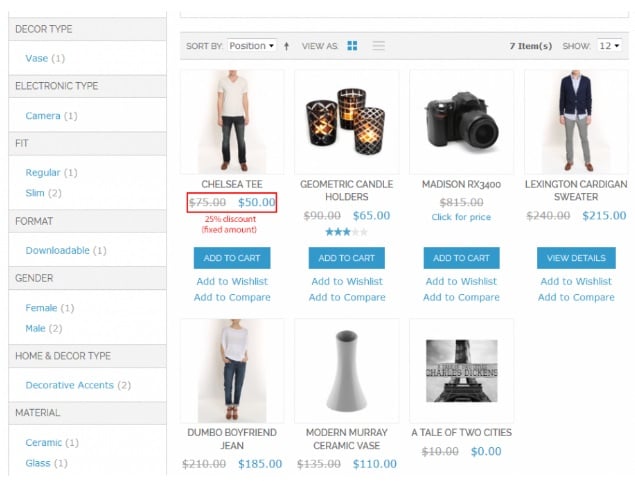
The last core feature of Magento Commerce Cloud is the ability to create custom price lists and catalogs. It’s not a surprise that all advanced Magento 2 B2B merchants already streamlined this functionality. And you can easily leverage the feature with the help of the following Magento 2 modules:
- Customer Price Rules – a module by Ecomwise that helps to implement different prices for different customers; and don’t forget about the company’s aforementioned B2B Orderlist;
- Prices per Customer – individual prices for each customer by Mageworx: individual approach to prices was never so easy.
Did we miss something? Please, let us know in comments how you implement the desired B2B functionality on Magento 2 Community Edition.
Magento 2 B2B Specifics
As of 2019, multiple B2B features have been implemented into the native Magento 2 functionality by the team. MSI, PWA elements, B2B extension by the developer team, and many more have been added to the system. The introduction of B2B entities made as react with own tool for their management.
The B2B entity administration is now possible thanks to the B2B add-on built upon the Improved Import and Export logic. The parent software supports all the existing Magento 2 entities and the add-on enriches the functionality with the processing of the following B2B features:
- Companies;
- Company Roles;
- Quotes and Negotiable Quotes;
- Requisition Lists;
- Shared Catalog.
The specifics of B2B have always revolved around the multiple user access and complex hierarchy of account permissions. The FireBear B2B add-on takes into account all the related details to make sure all the entities are open for any kind of attribute customization and can be integrated safely into a database. Successful transfers can be re-run multiple times via cron to update the data automatically. With the software, client management becomes less fully transparent and time-consuming.
You don’t have to spend tons of time on transfers of B2B entities via the B2B add-on of Improved Import and Export. All the configuration steps can be completed within the familiar single-page interface. First, you select a desirable entity for import or export. Then it’s time to specify the transfer behavior.
As for the data source, the functionality offers a variety of options out of REST and SOAP API, from FTP/SFTP, Google Sheets, Dropbox, URL, file upload. Files in CSV, XML, Excel XLSX, ODS, and Json (or the supported formats compressed ZIP and TAR) can be used for data retrieval.
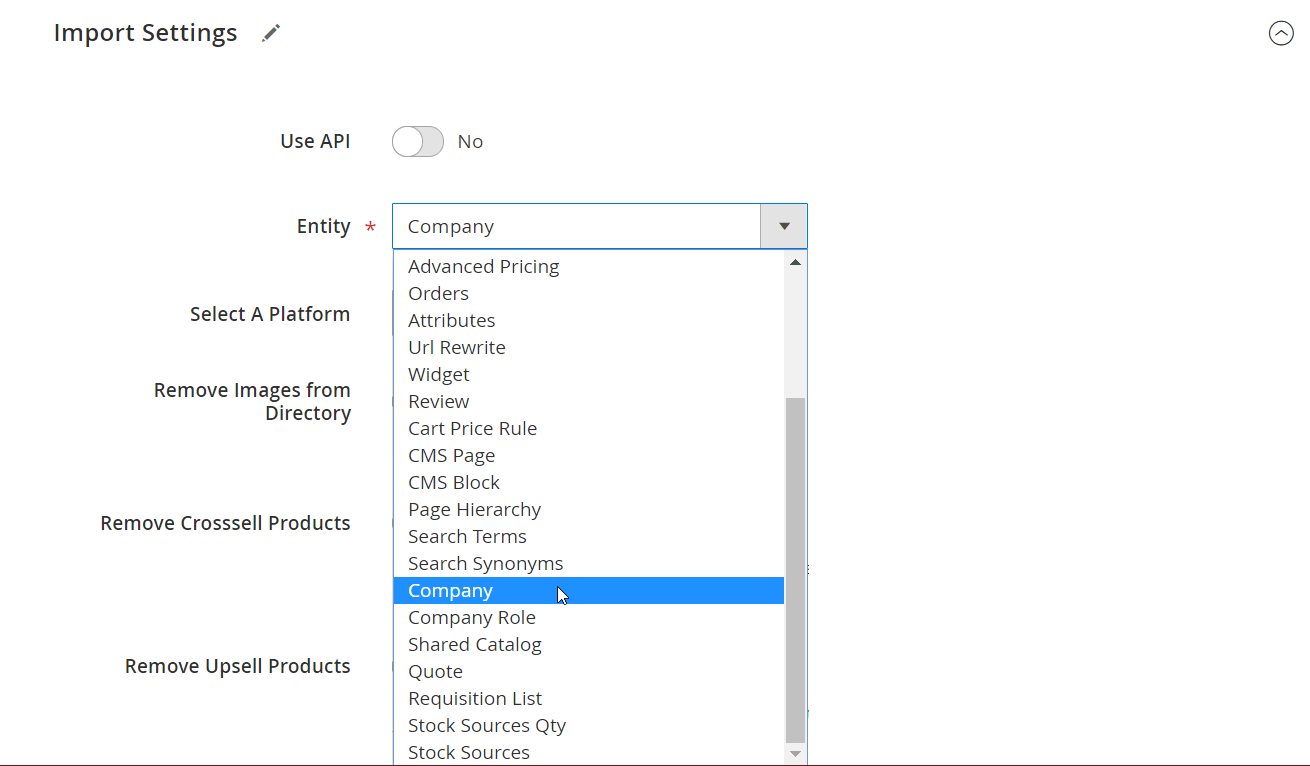
Successfully validated data becomes available for mapping. The functionality gives you full control over the attribute codes of your B2B entities.
Final Thoughts
By introducing these features, Magento becomes a B2B services provider. Although a limited B2B functionality was included into the platform before, only the appearance of Magento Commerce Cloud emphasized the intention to make the life of existing B2B merchants easier and widen the occupied market niche.
But it doesn’t seem that the new service will cover all business needs and problems. It’s a great free tool for Enterprise Edition and Enterprise Cloud Edition merchants with zero influence on Community Edition users. Furthermore, we think that there are some community-proven Magento extensions that solve the existing B2B problems much more efficiently.
In view of this, it is necessary to conclude that Magento Commerce Cloud illustrates an attempt to cover the gap between B2B and B2C Magento merchants; and makes the start of the company’s own B2B game. The attempt is far from being a leading B2B solution. To get the advanced B2B experience, you still need some third-party modules to be installed, but this is more reasonable for Community Edition (we think that EE should provide all the necessary features out of the box, so the need to install third-party modules must be eliminated) making Magento Commerce Cloud useless.








